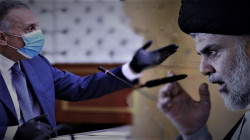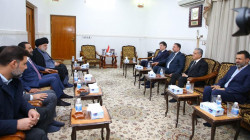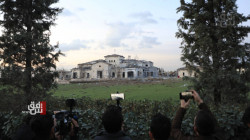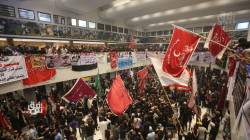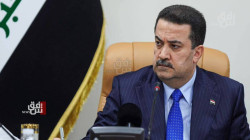The Patriotic Shiite Movement: Muqtada Al-Sadr's potential return to the Iraqi political arena
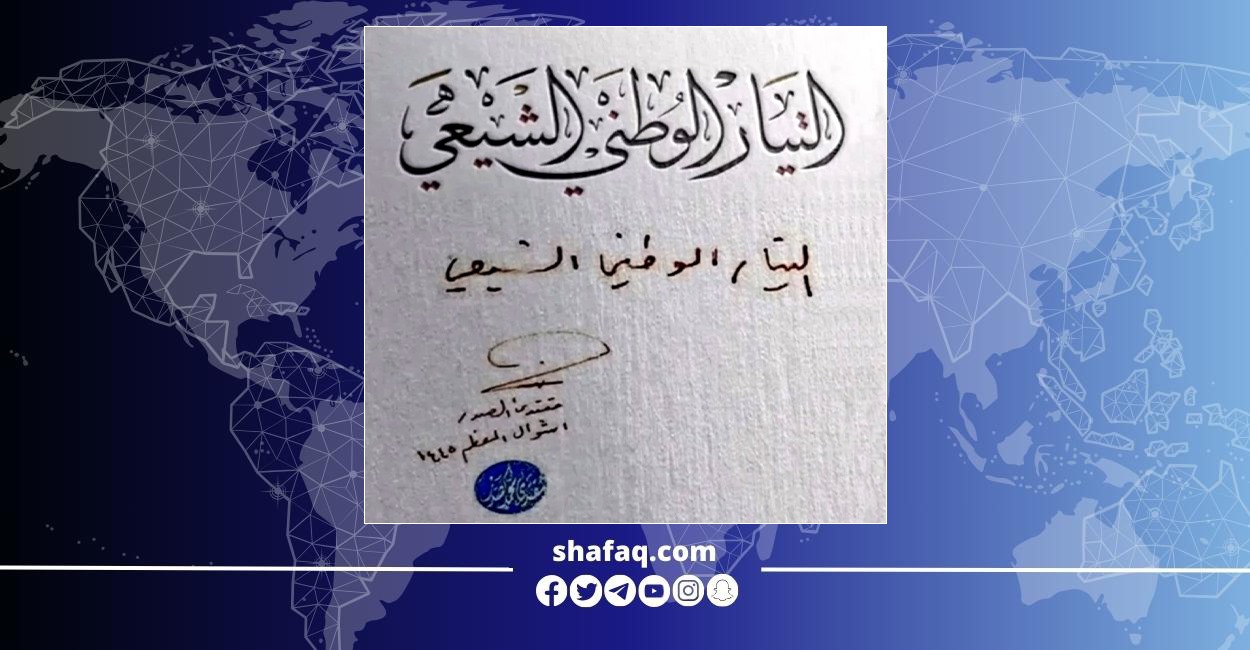
Shafaq News/ The prospect of Muqtada Al-Sadr's return to the forefront of Iraqi politics has ignited considerable speculation and analysis. His journey from a controversial leader to a pivotal figure in shaping Iraq's post-Saddam Hussein era is marked by twists and turns.
Now, amid shifting alliances and political dynamics, questions arise about Al-Sadr's potential comeback and its implications for Iraq's future.
Who Is Muqtada Al-Sadr
Muqtada Al-Sadr's lineage is deeply rooted in his father's legacy, the revered Grand Ayatollah Mohammed Sadeq al-Sadr, who courageously criticized Saddam Hussein's dictatorship and paid the ultimate price for his dissent.
The tragic assassination of Al-Sadr's father in 1999, alongside his cousin Sayyed Mohammed Baqir's earlier death at the hands of Saddam in 1980, showed the family's steadfast opposition to tyranny.
Grand Ayatollah Mohammed Sadiq al-Sadr's legacy of dissent resonates strongly with Iraq's Shi'ite majority, particularly during the oppressive reign of Saddam Hussein. Al-Sadr's untimely death in 1999 further elevated his status as a martyr, a narrative that Muqtada al-Sadr strategically leverages in his own political journey.
Wearing the distinguished black turban denoting his status as a Sayyid—a descendant of Prophet Muhammad—Al-Sadr inherits not only a religious heritage but also a legacy of resistance against oppression. What distinguishes Al-Sadr is his formidable popular appeal, a quality that sets him apart from many other Iraqi leaders.
Unlike some leaders who returned from exile following the U.S.-led invasion, Al-Sadr's steadfast presence in Iraq bolsters his credibility as a cleric deeply rooted in Iraqi soil.
Al-Sadr's political life
Muqtada al-Sadr has been a significant figure in Iraq since the ousting of Saddam Hussein in 2003. Initially rising to prominence through the fierce actions of his Mehdi Army against foreign forces after the US-led invasion, he later transformed his image into a nationalist and an advocate against corruption, gaining a reputation as a political influencer.
Al-Sadr's history includes leading revolts against U.S. forces, with his Mehdi Army once labeled as a major threat to Iraq's security by the Pentagon.
However, tensions with his Iran-backed rivals after inconclusive elections in October 2021 led to a political impasse, leaving Iraq in turmoil.
During the sectarian conflict of 2006-2008, allegations surfaced against the Mehdi Army of forming death squads targeting Sunni Muslims, a claim Al-Sadr distanced himself from.
In 2008, amid clashes with the Iraqi army, he dissolved the Mehdi Army, renaming it the Peace Brigades.
Al-Sadr's stance against Iranian influence has distinguished him from other Shiite leaders with closer ties to Tehran. In addition, he has consistently called for the withdrawal of remaining U.S. troops from Iraq.
While Al-Sadr stepped back from direct political engagement, his supporters wielded significant influence within Iraq's bureaucracy and streets, notably during anti-corruption protests in 2019.
The aftermath of the 2021 elections marked a tumultuous period as Al-Sadr's bloc (73 deputies) resigned, leading to violent clashes and his surprising exit from active politics. This move reshaped Iraq's political landscape, paving the way for a new consensus government under Prime Minister Sudani, ending a prolonged deadlock.
From the Sadrist Movement to the Patriotic Shiite Movement
Muqtada al-Sadr's recent decision to rename the Sadrist Movement as the "Patriotic Shiite Movement" signals a strategic shift in Iraq's political landscape. This move, announced on Wednesday, reflects Al-Sadr's calculated steps towards re-entering the political arena, as confirmed by insights from a prominent leader within the movement.
In an interview with Shafaq News Agency on Thursday, the leader elaborated on Al-Sadr's intentions behind this renaming.
"Al-Sadr aims to broaden his movement's appeal and establish a stronger political and popular Shiite majority. This shift aligns with his vision of forming a national majority government, encompassing various Shiite entities beyond the Sadrists." He said on condition of anonymity.
In this regard, political expert Salah Al-Mousawi contextualized this renaming within Iraq's Shiite framework. He noted, "While the name change itself may not alter the political equation significantly, it underscores Al-Sadr's positioning as a nationalist figure within the Shiite political spectrum."
"This strategic move may also serve to distance Al-Sadr from entities with strong ties to Iran, with whom he has had historical political conflicts. By presenting himself as a nationalist leader, Al-Sadr aims to carve out a distinct political identity and potentially forge new alliances that align with his vision for Iraq's future."
Does Al-Sadr want to return to politics?
Muqtada al-Sadr's intricate stance within Iraqi politics is characterized by engagement, withdrawal, and subsequent re-entry periods.
Ali Al-Sahib, head of the Regional Studies Center, outlined these dynamics, highlighting Al-Sadr's recent maneuvers, which indicate a keen interest in rejoining the political fray.
Al-Sahib noted, "Al-Sadr's pursuit of new strategies, including the concept of a "National Majority" government, aimed at sidelining traditional Shiite adversaries within the Coordination Framework."
Observers note a palpable eagerness within Al-Sadr Movement to reassert its influence.
Al-Sahib pointed to "internal measures and the movement's efforts to integrate more deeply into Iraqi society as signals of this resurgence. This strategic shift aligns with the sentiments of many Iraqis disillusioned by state institutions' failures to address essential needs."
Moreover, a significant turning point came with Al-Sadr's unexpected meeting with Grand Ayatollah Ali al-Sistani, Iraq's top Shia cleric, on 18 March. While their discussions remain undisclosed, Iraqi sources hint at al-Sistani's tacit approval for Al-Sadr's return to politics.
Subsequent actions, such as reactivating his parliamentary bloc and engaging in public outreach through his military wing, Peace Brigades (Saraya al-Salam), further underscore Al-Sadr's preparations for a potential political comeback.
Political analyst Saif Saadi emphasizes the Sadrist movement's gradual reemergence, especially post-Al-Sadr's meeting with al-Sistani.
Saadi highlights strategic decisions within the movement, like the dissolution of prominent figures and alignment with a broader "national space."
Despite reservations about the name change to "Patriotic Shiite Movement," as seen by some as a merging of sectarian and nationalist identities, Saadi acknowledges the Sadrist movement's "pivotal role in shaping Iraq's political landscape."
The looming prospect of early parliamentary elections adds another layer of anticipation, with the Sadrist movement positioning itself strategically within this evolving narrative.
Al-Sadr possible new alliances
Saadi emphasized that "in politics, everything is possible…we may witness his entry into an alliance with Mohammed Shia Al-Sudani, the current Prime Minister, in the upcoming elections because Al-Sudani has been given an opportunity and is approaching other spectra of society as there is no disagreement with them."
He explained, "As for (Nuri) Maliki, we cannot at all see al-Sadr allying with him due to the nature of the disagreement between the two parties, which is a fundamental ideological disagreement."
